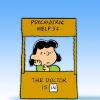-
Posts
7,023 -
Joined
-
Last visited
-
Days Won
79
Reputation Activity
-
 rising_star got a reaction from _kita in Leaving PhD program - reasons and advice
rising_star got a reaction from _kita in Leaving PhD program - reasons and advice
@buttercup8d, I don't think anyone said that POC should just suck it up. I think it was more of offering the counterpoint that the grass isn't always greener. I have friends in the corporate world who go through the exact same BS that POC academics talk about. It's definitely worth being aware of the advantages and disadvantages of each so that you can make an informed decision about where you want to be and how you want to spend your life. I recommend deep introspection and loads of informational interviews to help as you try to figure that out.
-
 rising_star reacted to Sigaba in How do you systematise your knowledge?
rising_star reacted to Sigaba in How do you systematise your knowledge?
I sort information by asking myself three broad diagnostic questions.
How does new information (from a secondary work or a primary source) help me to understand the immediate subject at hand. How does my refined understanding of the immediate subject at hand help me to understand one or more larger historiographical debates in my primary fields? How does my shifting understanding of larger historiographical debates in my fields help me to participate in debates that impact all professional academic historians? Two examples.
EXAMPLE 1
A community study (a secondary work) on Cincinnati teaches me:
The lives as lived by working class people over the course of a century. The impact of E. P. Thompson and others on the practice of American social history. The efficacy and limitations of social class as a primary interpretive lens. The trans-Atlantic influence of post 1960 social history on the practice of history in the U.S, Britain, and Western Europe and how "history from the bottom up" differs from traditional top-down approaches to the past. In what ways have the traditional approaches risen to the challenge? IME, the application of this multi-tiered approach is generally useful in getting through works efficiently and establishing a dialog among works. The approach probably emphasizes (2) and (3) at the expense of (1), which some professors will mind less than others.
EXAMPLE 2
Declassified documents from the [x] administration (primary sources) teach me:
How matters of naval policy and strategy were handled by the civilian policy makers and armed service professionals. How a refined understanding of naval affairs during the [x] years helps us to understand that period of the Cold War and post World War II naval history. Does the "new" military history have greater relevance for the Cold War than traditional approaches? Did this president's approach to naval affairs reflect a "naval renaissance" or something else? Did this president's naval policy materially enable America to win the Cold War? Was the Cold War a chapter of American naval history or is post World War II American naval history a chapter of Cold War history? How does the study of contemporary naval history help advance debates over the power of culture, the military revolution debate (MR), the debate over the revolution in military affairs (RMA)*, civil military relations, presidential leadership, the efficacy of war as an instrument of policy, and the militarization of American society and culture?
-
 rising_star got a reaction from rheya19 in Professor too lenient on students
rising_star got a reaction from rheya19 in Professor too lenient on students
Serious question: What do you think the students do upon receiving your paper full of comments and red lines? Do you think they learn anything at all from all those comments or that they are demoralized and/or confused about how best to proceed? My recommendation is that you NOT focus on grammatical errors and correcting those. That's editorial work. Maybe do it for a page or two but don't let that be the vast majority of your comments because that makes it too easy for students to focus on those and not the bigger errors in their writing.
This Youtube video has really good tips on giving writing feedback. Right now, you're doing the mechanical things PLUS trying to do the other things. If you actually want to help students improve their writing, you'll want to give what he calls global feedback. You also want to do more than just identify issues but move to suggesting solutions or identifying the rhetorical options for them.
-
 rising_star got a reaction from samman1994 in Professor too lenient on students
rising_star got a reaction from samman1994 in Professor too lenient on students
Serious question: What do you think the students do upon receiving your paper full of comments and red lines? Do you think they learn anything at all from all those comments or that they are demoralized and/or confused about how best to proceed? My recommendation is that you NOT focus on grammatical errors and correcting those. That's editorial work. Maybe do it for a page or two but don't let that be the vast majority of your comments because that makes it too easy for students to focus on those and not the bigger errors in their writing.
This Youtube video has really good tips on giving writing feedback. Right now, you're doing the mechanical things PLUS trying to do the other things. If you actually want to help students improve their writing, you'll want to give what he calls global feedback. You also want to do more than just identify issues but move to suggesting solutions or identifying the rhetorical options for them.
-
 rising_star got a reaction from Levon3 in Leaving PhD program - reasons and advice
rising_star got a reaction from Levon3 in Leaving PhD program - reasons and advice
To echo the above, that's going to be an issue when you're on the academic job market too. Jobs aren't often available in your field in places with loads of diversity (this is regardless of one's field).* Take a serious look at the job openings in your area (the Academic Jobs Wiki is a great place to start) to get a sense of what the market has looked like the past few years. If you don't like any of the kinds of options you're seeing, it's probably a good idea to start investigating alt-ac options and prepare for those while in your PhD program.
*This is even more true if you're not looking at R1 jobs but rather R2s or SLACs. Many of the nation's liberal arts colleges are in small towns an hour or two drive away from bigger cities, sometimes even further.
-
 rising_star got a reaction from TakeruK in SOP how to talk about changing interests within one field?
rising_star got a reaction from TakeruK in SOP how to talk about changing interests within one field?
I would talk only about the path that has led you to your current interests. If you do so, it'll give the adcom a sense that you know what you're getting yourself into and have a compelling reason for pursuing this particular MFA program.
-
 rising_star got a reaction from HermoineG in Planning a class event - on or off campus
rising_star got a reaction from HermoineG in Planning a class event - on or off campus
The suggestions above are awesome. You might want to ask students what kinds of things they'd like to do. Assuming that they're all first years, many are probably new to the town/area and thus don't know what opportunities are available. You could organize a trip to the local farmers market or another interesting community venue they may not know about.
It's also possible that your university offers discounted tickets or cheap/free access for students, which might make it possible for you all to attend an event at little or no cost to the students. For example, if your school gives free bus passes, you could all take the bus to a neighborhood and just walk around and explore it together.
Hope this helps! Let us know what you decide to do.
-
 rising_star got a reaction from hats in Contacting LOR writers
rising_star got a reaction from hats in Contacting LOR writers
It all depends on the kind of relationship you had with your letter writer beforehand. When I was having trouble getting one person on my doctoral committee to answer emails, I did contact her with a Facebook message. We'd previously interacted on FB so it wasn't totally out of the blue and I framed it as urgent because I needed an answer to a question over the weekend (yes, the timing was unfortunate but that part was out of my control). So, if I knew the person well, I wouldn't fret too much and just send them a short FB message asking if they were still interested in and available to write recommendation letters on your behalf.
As for the prof at SAR, have you emailed them at their new email address? It's entirely possible their email at your university was discontinued or that they're no longer actively checking it.
-
 rising_star got a reaction from Nico Corr in How does one go about "cold-emailing" professors at prospective schools?
rising_star got a reaction from Nico Corr in How does one go about "cold-emailing" professors at prospective schools?
Only contact them if you have a specific question to ask. And since you'll need a specific question, it probably makes sense to contact someone with whom you share research or other professional interests. Yes, you can contact more than one professor at the same school. No, a simple cold-call email isn't going to increase your chance of getting in.
-
 rising_star reacted to Professor Plum in Figuring out whether or not a POI is taking students
rising_star reacted to Professor Plum in Figuring out whether or not a POI is taking students
There is no way to determine whether a specific scholar is taking new students except to e-mail the person directly. And if you are making serious applications to PhD programs, you should be doing that anyway.
Most departments allow all tenured faculty to advise PhD students, and many departments (including mine) allow tenure-line faculty to advise doctoral students. (I'm still not sure whether having assistant profs advise doctoral students is a good idea or not, but it didn't seem to leave any permanent marks on my first PhDs) Just because someone is allowed to advise PhDs, however, does not meant that the person is taking new students. Reasons that someone on the tenure line might not be accepting new students include, but are not limited to: planning to retire; planning to leave; planning to take a sabbatical; too many students already in the pipeline; doesn't enjoy working with PhD students. And there's always the possibility that someone is open to working with new PhD students but isn't interested in you. Better to find that out before spending the time and money applying.
Short answer: There is no way to determine whether a specific scholar is taking new students except to e-mail the person directly. And if you are making serious applications to PhD programs, you should be doing that anyway.
-
 rising_star got a reaction from cowgirlsdontcry in selecting the right supervisor
rising_star got a reaction from cowgirlsdontcry in selecting the right supervisor
To answer your questions in order:
1) I never said that anyone should tolerate misconducts. Instead, what I pointed to was a realistic way to address the concerns you're interested in. A respected researcher and administrator is going to be more effective at addressing misconduct than an aspiring graduate student for many reasons including but not limited to those explained to you y TakeruK and fuzzylogician.
2) That's a matter of personal conscience. I cannot tell anyone else whether they should take actions which would damage their career but I know what I personally would do (some of which involves considering the effect it will have on others).
3) Yes, there are always "good" excuses not to act. Take all the people who did nothing while the KKK literally murdered people for the crime of having dark skin. But, that wasn't everyone. Some people spoke out. Some people did act. And, working together, they slowly pressured governments into enacting changes. Whether or not someone is too afraid to act is really an individual thing and, again, I cannot tell anyone else what they should do.
-
 rising_star got a reaction from Sigaba in selecting the right supervisor
rising_star got a reaction from Sigaba in selecting the right supervisor
So what? Lots of things happen that don't result in disciplinary action for all sorts of reasons. If you really want to be in a position to stop this, become a renowned researcher then move into the administrative ranks and become a provost/dean.
-
 rising_star reacted to Sigaba in Have I been played?
rising_star reacted to Sigaba in Have I been played?
Compare the above to the below...
...And ask how members of your cohort are achieving their goals. Are they doing exactly what you're doing or are they doing something more / less / different? Are your circumstances specific to your field of interest? Are your expectations of graduate school in general and your program in particular realistic?
My broader point is that it can be easy to assume that The Way Things Should Be is better than The Way Things Are. Similarly, it can be easy to hold to one's assumptions than to step outside one's comfort zone to make the adjustments, big and small, that will get one where one wants to go.
-
 rising_star reacted to Casual_Bongos in Is it okay to tangentially criticize my alma mater in SOP?
rising_star reacted to Casual_Bongos in Is it okay to tangentially criticize my alma mater in SOP?
I agree with Kita. Do not criticize your former school or teachers. The people reading your SOP are either going to be teachers themselves or on the side of teachers and schools. they're not going to look kindly at student who seems to be anti-teacher or comes off as "knowing better" than their former college and teachers. They don't know you yet and you don't want them wondering whether or not you'll be badmouthing them when you leave.
Instead just acknowledge your low GPA and then go into what you've accomplished since then to prove to them that you've learned your lesson or corrected whatever the cause of the low GPA was. In your case you may want to paint it as "(Former University) offered a variety of outside projects that I became interested in. Unfortunately I failed to maintain a proper classroom - project balance and my grades slipped. I realize now that I needed better time management skills and have worked hard to correct that. In addition, my involvement with XYZ projects helped expand my knowledge by ...." They'll appreciate you being up front and taking responsibility for your low GPA and should hopefully realize you will work to do better at their school.
Good luck!
-
 rising_star got a reaction from ploutarchos in Seeking a Doctorate in History, with online undergrad
rising_star got a reaction from ploutarchos in Seeking a Doctorate in History, with online undergrad
This isn't entirely true. Professors at a community college teaching a 5/5 aren't expected to do much (if any at all) research. Same for many of the smaller (aka, directional) state universities. Where the teaching load is higher, the emphasis on research is lower. Consequently, it's not really fair to say that you have to enjoy doing research to be a professor as a universal truth. It's definitely true of R1s, R2s, and most liberal arts colleges* but it really isn't true everywhere. If the OP is comfortable with a FT job with a higher teaching load, they could do just fine without having research as their primary responsibility.
*With the caveat that at many LACs, your teaching evaluations and performance are what will get you tenure. Some research is needed but not a lot. But if you don't like teaching 3 courses a semester and working with undergrads intimately and you aren't good at it, you won't get tenure even with a book published.
-
 rising_star got a reaction from materialsgirl in Choice Between UCLA and UCI for Physical/Theoretical Chemistry PhD
rising_star got a reaction from materialsgirl in Choice Between UCLA and UCI for Physical/Theoretical Chemistry PhD
What do you mean when you say that UCI is "a worse school"? Why did you apply if it is indeed worse?
-
 rising_star got a reaction from Chai_latte in Should I graduate or stay to do more research?
rising_star got a reaction from Chai_latte in Should I graduate or stay to do more research?
How much more time would you need to invest in order to make these potentially meaningful discoveries? Is it something that could happen by delaying your graduation for a semester or is it something that would take years? If it's the former, I'd go ahead and stay since you seem to like this research. If it's the latter (years away from a major breakthrough), then I'd continue on with your previous plan of graduating and finding a job. But that's just me.
-
 rising_star got a reaction from ShewantsthePhD101 in How important are friends/social life in grad school?
rising_star got a reaction from ShewantsthePhD101 in How important are friends/social life in grad school?
Where did I say anything about "going out to bars"? Oh, that's right. I didn't. My concern is more that someone who is singlemindedly focused on coursework and research misses out on some of the key learning that's necessary to succeed in academia. As much as I loathe drama and politics, academia is full of them and being able to navigate these successfully is crucial when you're junior faculty. Even outside of academia, every workplace has its drama and it pays to pay attention, even if only so you can avoid getting caught up in it. You don't have to take my advice but, maybe someone else on this thread will find it of value.
@SarahBethSortino, I did plenty of socializing (both with my cohort and with others) in grad school that didn't involve going to the bars. We would go out for coffee, have work sessions in local coffee shops, work out together at the gym, watched sports together (live or on tv) etc. A lot of what I did with people was driven by our shared interests. I know that others would go biking, hiking, or rock climbing together, for example.
Looking back at my PhD, I had two good friends in my cohort (one MA/PhD student and one PhD student) plus two good friends (one each from the two cohorts ahead of mine*). As others have said, those are the people who have reviewed my grant, fellowship, and job application materials (yes, even when we were applying for the same thing!), given me feedback on drafts of journal articles, etc. In my case, we all have similar-ish research interests, which makes some of those things easier. I've never actually published with any of them, though I also wouldn't rule it out as something that might happen in the future. Those in the cohorts ahead of me were useful for thinking about exams, committees, coursework strategies, navigating weird institutional policies, etc.
Here's what I've noticed about those who were from the city where I did my PhD and had a network outside of campus. They didn't make close friends with anyone but then would all of a sudden become very friendly when they needed something. This meant that they were a lot nicer to others when they wanted a copy of your successful fellowship application, for you to share a syllabus and set of assignments you developed, or wanted your feedback on their fellowship/grant materials. I... dislike when people do that. It's one thing to share with your friends and another to share with someone who is basically a stranger that you've seen in the hall sometimes. So, regardless of whether you make lifelong friendships, I'd encourage everyone to cultivate collegial relationships with others in the program so you gain these informal benefits.
*BTW, when I say "cohort", I'm referring to when we started our degrees. For any number of reasons, several of us finished around the same time, despite not starting in the same year.
-
 rising_star reacted to Professor Plum in Liberty University Masters in History
rising_star reacted to Professor Plum in Liberty University Masters in History
Another data point, if you want it:
Before you invest the effort and money, it's worth doing a bit of research in the particular districts you're interested in to see if they make any distinctions between MA degrees depending on accreditation, online v. in-person, and so forth. Most public systems I'm familiar with do not make these distinctions, but it doesn't hurt to double-check before you enroll.
If your ultimate goal is to apply to a PhD program, an online degree from Liberty is likely to be useless, or worse than useless. I'm on the admissions committee at a slightly-better than average R1, and over the years I've learned to be very, very skeptical of online graduate programs. So much of the intellectual growth in an MA program comes as a result of face-to-face seminar discussion, and that can only be approximated in an online program. I've seen very smart applicants with online degrees (due to life circumstances, deployment, and so forth), and there is something absent from their work that I've concluded is the result of missing out on the give-and-take of discussions with the faculty and on the academic debate that unfolds in seminar settings. I've also begun to suspect that many online graduate degrees are not always using their best faculty members to lead the online classes, and based on my admittedly small sample of graduates, I have some questions about the overall rigor of the online programs I've seen.
In the case of Liberty, those concerns are doubled. I don't hold the politics or worldview against the applicant (some faculty members might, I suppose, though I think only to a small degree.) A greater concern is the quality of the faculty, very few of whom appear to have published significantly and some of whom don't hold the PhD. A recommendation letter from a tenure-line faculty member who doesn't have a doctorate means nothing to me: How can someone accurately gauge an applicant's readiness for doctoral work when they haven't done it themselves?
At best, we're likely to take an applicant with an online degree from Liberty and invite them to join our MA program and to reapply to the PhD program in two years' time. Most of them take this invitation (to put it nicely) very, very badly. At worst, listing an online Liberty MA on your PhD application is like waving a large flag to the admissions committee that reads I do not understand this process very well.
-
 rising_star got a reaction from rheya19 in Liberty University Masters in History
rising_star got a reaction from rheya19 in Liberty University Masters in History
@James D., that's not at all what I saw on the UMass website... The amount you quoted is for on-campus, non-Massachusetts residents. Online students pay $575 per graduate credit hour. You'll want to make sure you're reading these things as carefully as possible so you don't rule out a potential option too quickly. Also, I just want to note that choosing a grad program based solely on the cost isn't the best idea. Given your goals, you should be focused on finding a program which will set you up to pursue what you want in terms of career and future PhD options. Unfortunately that may not be the least expensive program.
-
 rising_star got a reaction from _kita in Explaining below-average UGPA and weird courses?
rising_star got a reaction from _kita in Explaining below-average UGPA and weird courses?
I wouldn't mention something from so long ago, especially when you have more recent, relevant coursework that you've done well in.
-
 rising_star got a reaction from Epaphroditus in Explaining below-average UGPA and weird courses?
rising_star got a reaction from Epaphroditus in Explaining below-average UGPA and weird courses?
I wouldn't mention something from so long ago, especially when you have more recent, relevant coursework that you've done well in.
-
 rising_star got a reaction from James D. in Seeking a Doctorate in History, with online undergrad
rising_star got a reaction from James D. in Seeking a Doctorate in History, with online undergrad
This entire thread has taken a turn toward the bizarre. @James D. originally asked if there were people with online degrees who have been successful getting into PhD programs and now everyone is questioning their motives and reasons for doing a PhD and trying to talk them out of even trying. Why? What incentive do you all have to keep this one person on the internet from pursuing graduate study in an area he's interested in which may--in four years--lead him to enter a PhD program? @James D. didn't say he wants to apply for a PhD right now, but wants to do things which might prepare him to apply for one four years from now (AKA, the length of a "typical" bachelor's degree). I can't say that I'm used to this level of trying to talk someone out of something, even when it comes to posts in response to current college undergrads who have only taken ais the few history courses.
So, to answer the original question, it's definitely possible @James D.! Are there any opportunities for you to work with historical materials in your current military job? If so, doing that may strengthen your application as much as or more than doing an online master's. If you are to go the online master's route, I'd stick with schools with a known and strong brick-and-mortar presence, and ideally those who won't note that your degree is earned online. I'm less familiar with specifics for history but I know that Arizona State and Penn State have big online programs. There are also other schools where you may be able to get a master's in humanities or liberal arts online or in a low-residency format, like Regis University or Antioch New England. Honestly, I would just google around for universities and take a look at all of their online offerings to see if there's anything that would work for you.
If you're really thinking about teaching high school while in or after the military, it's probably worth it to go ahead and get a teaching credential while the military is paying for it. This will entail taking some education courses but you could focus on secondary school history/social science, which would also mean upper-level undergrad and some grad courses in that area. Most M.Ed. programs require an area of concentration, so you'd get the teaching experience plus the content knowledge. That said, it is likely harder to find one of those online. If you just want to go the teaching certificate route (for now), you may be able to find the courses you need through a community college.
I hope this helps! I'm not going to question your motives or desires because anyone who has served for 13 years in the military deserves our respect. Perhaps read the story of the PhD applicant who is going from prison to NYU as inspiration? Not because your cases are similar but because it shows a remarkable ability to triumph over numerous obstacles (including not having access to the internet) to pursue one's ultimate desires. Good luck! Keep up posted on your progress!
-
 rising_star got a reaction from BrookieDol in MA vs PhD Anthropology
rising_star got a reaction from BrookieDol in MA vs PhD Anthropology
The main downsides are the additional time it will take. But, it sounds like you already have compelling reasons to do a MA first. If you can find funding, the research experience you gain during a MA program can definitely make you a more desirable applicant for PhD programs.
-
 rising_star reacted to TMP in convincing committee to let me retake comps
rising_star reacted to TMP in convincing committee to let me retake comps
@serenade Writing dissertation proposals is different for everyone, unfortunately. I came in with a MA and that dissertation topic (coming out from my MA thesis) and knew pretty much what I wanted to write. For me, as a born-researcher, working on my dissertation proposal was far much more fun and easier than prepping for the comps. I barely stressed out. I will say that prepping for the comps definitely changed the way I wanted to entered in various conversations. If this is your first go at writing a proposal and haven't thought much about your dissertation since you started it will be challenging. My guess is that if you are able to demonstrate in clear ways your work contributes to the extant scholarship, particularly if the sources are relatively new or a different methodology that hadn't really be considered, you will likely be fine. Having prepped for the comps should have given you a clear sense of what is considered a clear, nuanced approach to the historical problem at hand, not a simplified one as undergraduate papers tend to do.
The information coming out of your adviser's meeting sounds terrific. Yes, 2-3 times should be just fine. Remember, none of these professors expected to have to make time for your this semester so you will have to work with what they have on their plate. My professors certainly didn't and prioritized our meetings only when they knew for sure they had the energy and time for the discussions. You will soon find the last meeting for each to be like, "why are we here again? We've talked about everything, as it seems." The professors will use these meetings to measure your level of improvement, particularly if you are the type who feels more comfortable one-on-one than in a group (as I was). My adviser also said the same about not using writtens during the next round of oral; you will just have to be ready for whatever. That said, demonstrate your increased comfort level, ability to teach a survey course, and understanding of history and historiography during your meetings this semester and the committee will likely put more weight on your improvement as much as what actually happens on that day.
As for questions, you might actually want to look back at old AP European history exam questions and see how you can answer them with a mix of historical facts and scholarly arguments. I remember how embarrassed I was when my adviser, also embarrassed, told me that a number of questions I was asked were based on undergraduate survey course final exams.... #facepalm




.thumb.jpg.345d7601145ac87f6d7d5a44e8a9318a.jpg)






